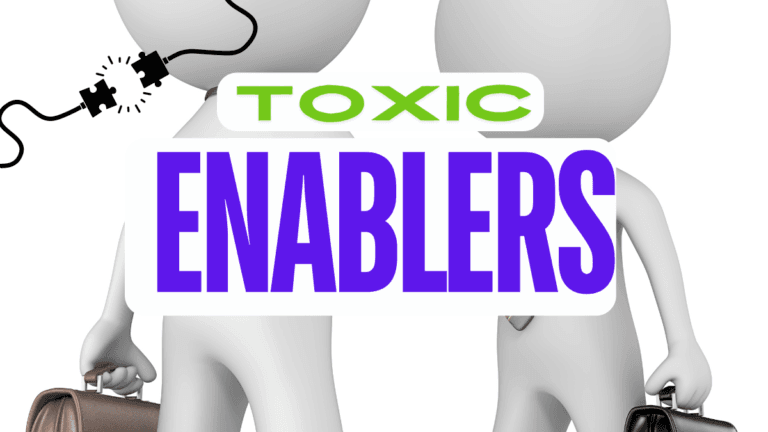7 Essential Ways to Break the Cycle of Narcissism and Codependency: Achieving a Positive Breakthrough
Breakthrough
Narcissism and codependency often form a toxic and damaging cycle in relationships. Codependent individuals tend to lose themselves in serving others, while narcissists exploit this tendency to fulfill their own needs for control and admiration. Breaking free from this toxic dynamic is crucial for emotional health and personal growth. Here are seven essential ways to break the cycle of narcissism and codependency, leading to a positive breakthrough in your life.
Related: Do Boundaries Really Work with Narcissists? Learn Effective Strategies
Related: Why Narcissists Struggle with Empathy: Understanding the Science Behind their Behavior
Related: Understanding Why Narcissists Create Chaos
Related: You Must Protect Yourself from Their Emotional Manipulation, Learn Strategies
1. Recognize the Toxic Pattern
The first step in breaking the cycle is to recognize the toxic dynamics of narcissism and codependency in your relationships. Identifying the signs of manipulation, control, and emotional abuse is essential to start detaching yourself from the unhealthy connection.
What to Look For:
In a narcissistic-codependent relationship, you may notice that the narcissist constantly seeks validation and power while you, the codependent, may feel obligated to prioritize their needs over your own. Recognizing this pattern is the key to initiating change.
What to Do:
Start by reflecting on your relationships. Pay attention to how often you feel drained, anxious, or guilty. Write down specific instances of manipulation or control to help you gain a clearer perspective.
Why Boundaries Often Fail with Narcissists
| Reason | Explanation |
|---|---|
| They Disregard Rules | Narcissists see boundaries as a challenge to overcome, not a limit to respect. |
| Testing Limits | Narcissists constantly test boundaries, looking for weak spots to exploit. |
| Manipulation | They use guilt, charm, or aggression to force you to relax your boundaries. |
| Persistent Pressure | Narcissists often wear you down through relentless pressure to bend your limits. |
| Revenge Tactics | If boundaries are enforced, they may retaliate with emotional or legal harassment. |
2. Set Clear Boundaries
Establishing and enforcing boundaries is a critical step in breaking the cycle of codependency. Narcissists often push boundaries to maintain control, while codependents struggle to enforce limits due to fear of rejection or conflict.
Why It Matters:
Boundaries help protect your emotional and mental well-being. When enforced, they limit the narcissist’s ability to manipulate or exploit you, and they empower you to regain control over your own life.
What to Do:
Identify areas in your relationship where you need boundaries—whether it’s limiting communication, asserting your personal space, or saying no to unreasonable demands. Stick to these boundaries consistently, even when the narcissist tries to break them.
3. Develop Self-Awareness
Breaking free from codependency involves developing a deeper sense of self-awareness. Codependents often lose their identity in their relationship with the narcissist, leading to low self-esteem and a lack of self-worth.
Why It Matters:
Building self-awareness helps you understand your emotional triggers, your needs, and your desires outside of the relationship. It empowers you to stop seeking validation from the narcissist and to begin valuing yourself independently.
What to Do:
Engage in activities that foster self-reflection, such as journaling, therapy, or mindfulness exercises. Take time to explore your passions, strengths, and personal values.
4. Seek Professional Help
Therapy is a powerful tool in breaking the cycle of narcissism and codependency. A professional therapist can help you understand the root causes of your codependency, identify unhealthy relationship patterns, and guide you toward healthier behaviors.
Why It Matters:
Narcissistic-codependent relationships are often deeply ingrained and difficult to break without outside help. Therapy provides a safe space to explore your emotional needs, heal from past trauma, and develop healthier coping mechanisms.
What to Do:
Find a therapist who specializes in narcissistic abuse or codependency recovery. Individual therapy, group therapy, or support groups can all provide valuable insights and support.
5. Practice Self-Care
Codependents often neglect their own needs while prioritizing the narcissist’s. Reclaiming your sense of self involves actively engaging in self-care, which includes not only physical well-being but also emotional, mental, and spiritual health.
Why It Matters:
Self-care helps replenish your energy, build self-esteem, and reinforce the notion that you are worthy of love and attention—without needing the narcissist’s validation.
What to Do:
Make self-care a daily practice. This could include exercise, proper nutrition, relaxation techniques, or simply taking time to do things you enjoy. Prioritize activities that make you feel good about yourself.
6. Engage in "No Contact" or Limited Contact
One of the most effective ways to break the cycle of narcissism and codependency is to establish “no contact” or, if necessary, limited contact with the narcissist. Narcissists thrive on attention and emotional engagement, so cutting off contact reduces their ability to manipulate you.
Why It Works:
By enforcing “no contact,” you are creating a clear separation between yourself and the narcissist, allowing you to heal and focus on rebuilding your life without their toxic influence.
What to Do:
If cutting off contact entirely isn’t possible (such as in co-parenting situations), limit communication to only what is absolutely necessary. Use written communication when possible and avoid engaging in emotional conversations.
7. Rebuild Your Support System
Narcissists often isolate codependents from their support networks, making it difficult for them to reach out for help. Rebuilding a strong support system of friends, family, or community can help you gain the strength and encouragement needed to break the cycle.
Why It Matters:
A supportive network helps you stay grounded, provides emotional encouragement, and offers a healthy perspective on your situation. Having people who truly care about your well-being makes it easier to distance yourself from the narcissist.
What to Do:
Reconnect with supportive friends and family. Consider joining a support group for individuals recovering from narcissistic abuse or codependency. Surround yourself with people who empower and uplift you.
breakthrough breakthrough breakthrough breakthrough breakthrough breakthrough breakthrough breakthrough breakthrough breakthrough breakthrough breakthrough








